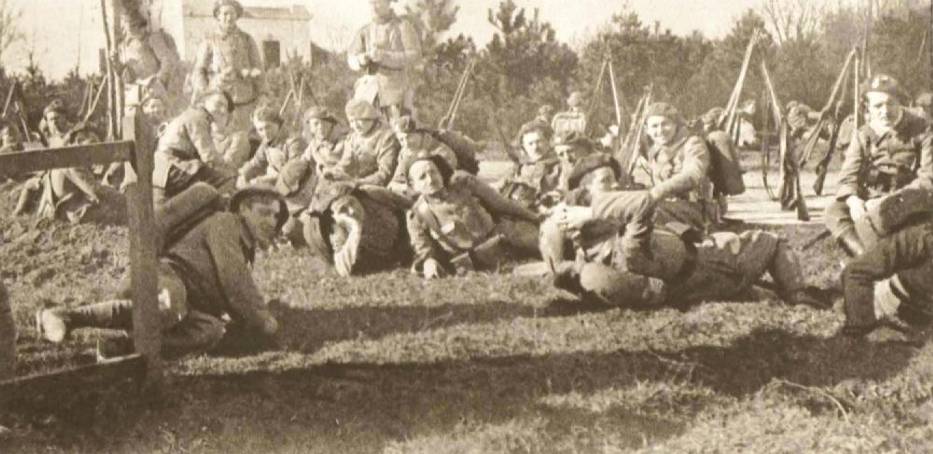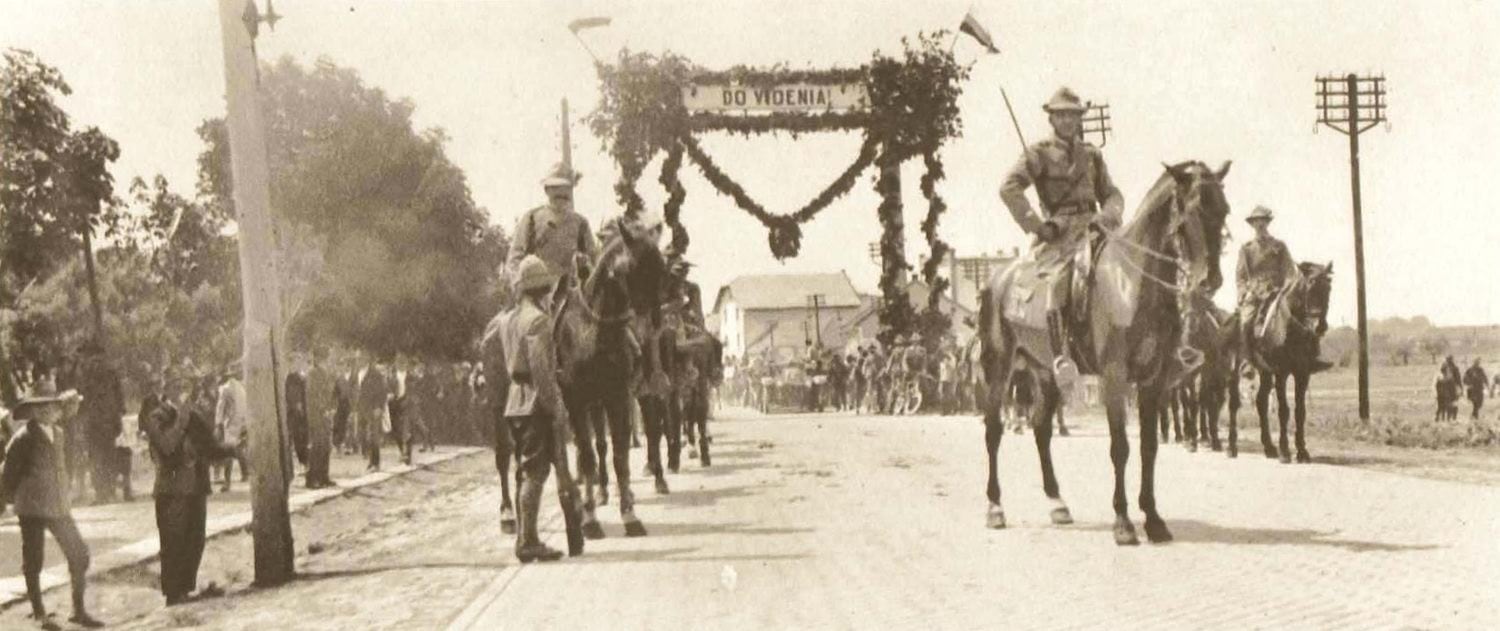Můj rodný kraj  Jsem moc rád za tento článek a moc děkuji!
Jsem moc rád za tento článek a moc děkuji! 
23.01.1919 - Czechoslovak army invaded Těšín
Categories: First World War , Calendar
It has claimed dozens of dead soldiers, and hundreds more missing. Although 101 years have passed since the Seven-Day War, there is still one incorrect claim in Polish literature...
The end of the First World War was the beginning of a new development in the world. Especially in Europe, where new states were created. Negotiations about the post-conflict arrangements were already taking place between the politicians of the future representations of Czechoslovakia and Poland during the war. This happened, for example, in 1917 in Lvov and the following year in Prague, Paris and Krakow. However, it became clear to both sides over time that it would eventually be necessary to partition Těšín in particular, but their ideas were very different and so far were kept quiet.
But the last days of the war changed everything. Local officials in Těšín took action and wanted to take advantage of the situation. And so, on 19 October 1918, at a meeting in Cieszyn, they agreed with representatives of Polish political parties that Těšín would belong to Poland. They even created a body under the name of the National Council of the Principality of Těšín, which declared the whole of the so-called Těšín Silesia to be part of Poland. They disarmed the Austro-Hungarian garrisons and militarily occupied most of the territory on the night of 31 October to 1 November.
"But the Czech Provincial National Committee for Silesia in the then Polish Ostrava announced on the last day of October that allto all the state authorities in Silesia that it was taking over the government of Silesia, including Těšín, in the name of the Czechoslovak state. There was essentially a stalemate, because both sides could exercise their authority only in the part where they had succeeded in obtaining it," writes Jiří Bílek in his book Sour Apples of Těšín.
The two sides began to negotiate on November 2, but were unable to reach an agreement. The situation escalated into a military intervention, which was decided by President Masaryk when he called an emergency cabinet meeting on 17 January. He chose January 23, 1919 as the latest date for military action. "The debate in the government was long. In the end the proposal was approved, but with the addition that the Polish government would be informed of the intervention at least 48 hours in advance. Foreign Minister Benes was tasked with obtaining the consent of the Allied powers in Paris for the planned move," Bílek describes.
The hope of avoiding a conflict was the new Polish government appointed at the time with Ignacy Paderewski. Masaryk knew him from exile and was convinced that he would push through a more realistic policy. However, the Polish government did not deal with Těšín at all, and Benes received the support of France. There was therefore no reason to wait any longer to take military action, and so a plan of operation was prepared. At exactly one o'clock in the afternoon of 23 January 1919, Czechoslovak troops attacked Bohumín and Karviná. Legionary troops from Italy then advanced from the east towards Těšín. The fighting was really hard. On the Czechoslovak side, as many as 53 people were killed (about a third of the casualties were legionaries), 124 were wounded and seven are missing. As for the Polish enemy, there were 92 dead, 855 wounded, 813 missing and 576 captured.
The Polish troops were forced to retreat as far as the Vistula River, and Těšín was thus occupied by the Czechoslovak army without a fight on 27 January. The advance was halted only on 31 January by order of the Czechoslovak Ministry of National Defence. This was due to the great dissatisfaction of the Allied Powers with the attack on Těšín. If the Czechoslovak troops had continued the attack, it would probably have meant the collapse of the entire Polish defence in Těšín and the retreat of the Polish troops would have turned into a flight.
On both sides, there were subsequently accusations of various atrocities, which even today cannot be credibly believed. "In our press there was a claim of a fallen legionary whose nose, ears and appendages had been cut off by a 'Polish collector'. Journalists also wrote about Polish civilians shooting at soldiers from behind. The Polish side accused our soldiers of gouging out the eyes of the son of General Haller, the commander of the general district in Krakow, who had been killed in the fighting. The most serious accusation was leveled against the soldiers of the 21st Rifle Regiment, who on January 26, 1919, in Stonava, were supposed to have murdered by shooting, bayoneting and beating with rifle butts 20 captured soldiers of the 12th Wadowice Infantry Regiment. This was later claimed by the locals. Poles and it is sometimes claimed even today...," Bílek writes in his book.
Czechoslovakia and Poland solidified the armistice on 26 February 1919. To this day, there is an incorrect claim in Polish literature that it was concluded as a result of the defeat of Czechoslovak troops at Skočov, which is not true. "In the end, Teschen was divided on 28 July 1920 at the Spa Conference. Czechoslovakia received about 56 percent of the territory with the Kosice-Bohumín railway, Poland received the historical core of Těšín with its castle, the former seat of the Těšín princes. The division of Těšín disappointed part of the Czech public, while Polish revisionist claims throughout the interwar period worsened mutual relations and led to the occupation of Těšín by Polish forces in October 1938," the Military History Institute writes.


Source: Jiří Bílek: The Sour Apples of Těšín, https://cieszyn.naszemiasto.pl/, www.vhu.cz
The article is included in categories:
Post
Je to tam v tučném úvodu : od sedmidenní války uplynulo 101let. 
Děkuju za upozornění  Když jsem ten článek psala, tak jsem pořád měla v hlavě sedmiletá a vůbec nevím proč, i když jsem věděla, že je to sedmidenní a pořád jsem sí říkala: hlavně to tam nenapiš
Když jsem ten článek psala, tak jsem pořád měla v hlavě sedmiletá a vůbec nevím proč, i když jsem věděla, že je to sedmidenní a pořád jsem sí říkala: hlavně to tam nenapiš 

Viky, díky za článek. 
Bigmakaku dík za upozornění.
Perfektní článek, díky 













